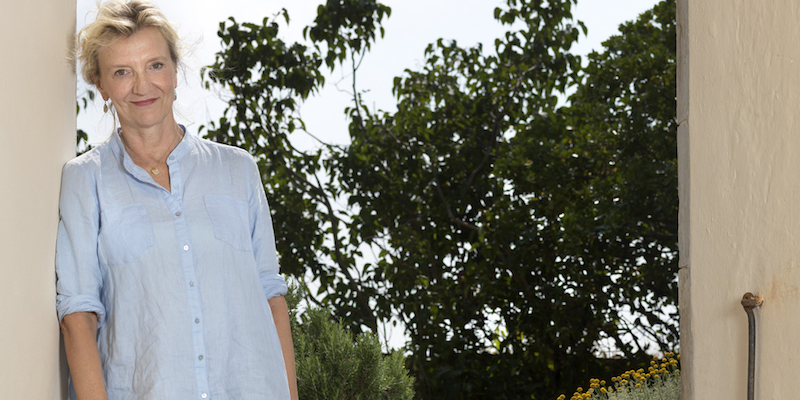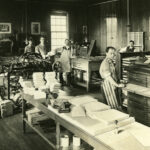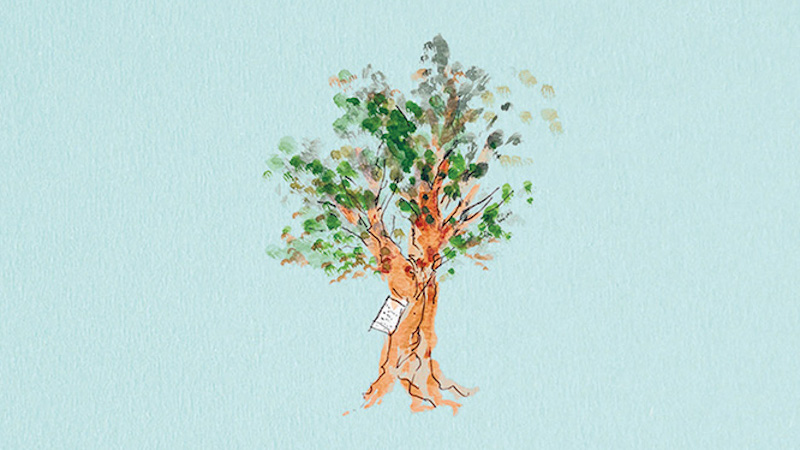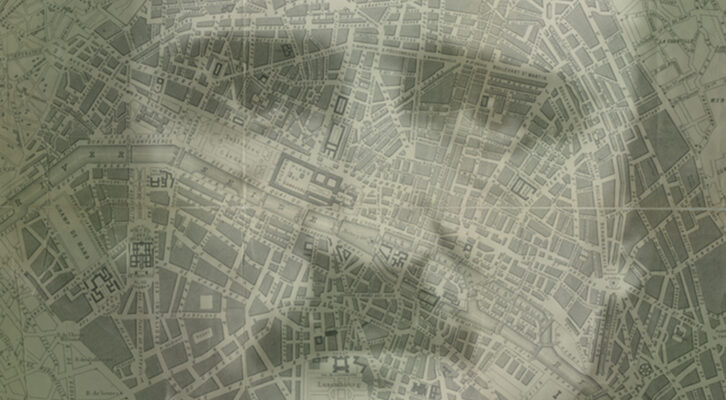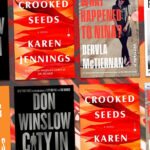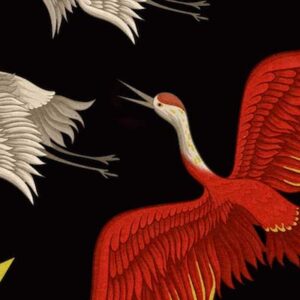Elizabeth Strout on Inhabiting Her Characters and Writing Directly
Jane Ciabattari Talks to the Author of Oh William!
Lucy Barton is back. And what a pleasure it is to reconnect.
Elizabeth Strout’s 2008 novel about a cantankerous Mainer, Olive Kittredge, won her a Pulitzer and fascinated readers, as did the follow-up, Olive, Again. Her fifth novel, My Name Is Lucy Barton (2016), introduced Lucy, a writer from small-town Amgash, Illinois. We first meet Lucy in “a very strange state—a literally feverish waiting” as she lies in a hospital bed in New York for nearly nine weeks while healing from an infection after an appendectomy. She misses her husband William and two young daughters. Her mother visits, and tells her stories about their Amgash neighbors and friends. By the time the novel is over, both parents and William have disappeared from her life. Strout’s story collection, Anything Is Possible (2017), shifts the focus to characters in Amgash who knew Lucy as a child.
Oh William! circles back to Lucy and that first husband, Tom, after their children have grown and both have remarried. (Lucy’s husband David has recently died and, Strout writes in the opening section, “in my grief for him I have felt grief for William as well.”) Reading Oh William! is a joy, a settling back into a beloved connection, hearing how her life has gone, what she’s up to now. But before we move on to Lucy, our conversation begins with the question of what’s going on now with her author.
*
Jane Ciabattari: How have you fared during this past 18 months? Where have you been living? Have you been writing?
Elizabeth Strout: All things considered, and there are many to consider, I have fared pretty well over the last eighteen months. But we moved to Maine for good when the pandemic started and that has been a real adjustment. But it is beautiful in Maine, I just miss seeing people everywhere. You know, the wide assortment of people that one passes continually on the streets of New York, that is what I miss. That is what I loved so much about the City. The people.
JC: What drew you back to Lucy Barton, for a third book in the Amgash series, after My Name Is Lucy Barton (2016) and Anything Is Possible (2017)? What is it about this woman, a novelist born in poverty in Amgash, Illinois, that fits your voice?
ES: What drew me back to write about Lucy again in Oh William! is this: I was at a rehearsal with Laura Linney who was playing Lucy Barton in a one woman show, My Name is Lucy Barton, on Broadway, and she murmured something about William as she took a step and she put her glasses up on the top of her head and I suddenly thought: Oh William! Because I realized then that he had his own story, and I would write about it.
Just say it directly—is my mantra for a book like this.Lucy’s voice is one that seems to come naturally to me. I am not Lucy, but she is accessible to me in a strange way. Her voice is who she is, and she has what I think of as a kind of breathy, almost anxious, way of speaking. She was born in poverty and I was not. But there was an isolation to her background that I can identify with.
JC: Do you miss your characters—Olive Kittredge as well as Lucy Barton—when you’ve finished a book? How do you set them that to rest?
ES: I do kind of miss my characters when I am done writing about them, and they sort of stay in my head without my even fully knowing it. This is one reason I return to them, I think. They are alive to me.
JC: Your opening lines make clear the focus of Oh William!: “I would like to say a few things about my first husband, William. William has been through some very sad events—many of us have—but I would like to mention them, it feels almost like a compulsion; he is 71 years old now. My second husband, David, died last year and in my grief for him I have felt grief for William as well.” This sets up a complicated set of narrative threads you weave throughout the novel, with clear shifts via declarative sentences (at another point Lucy notes, “About my former mother-in-law, Catherine, I would like to say this”). How did you come up with the structure that keeps the time shifts so clear, and maintains the primary focus on William, one aspect of Lucy’s life?
ES: You know, I think as I was writing this I thought: Just be as clear as possible. So when Lucy says, “I would like to say a few things about William”—then I talk about him, or Lucy does. And when she switches gear, I made sure to just let the reader know that directly. As in “About my former mother-in-law, Catherine, I would like to say this.” So the reader (hopefully) knows where they are all the time. Just say it directly—is my mantra for a book like this.
JC: Lucy left William after discovering his multiple affairs. Lucy dreamt William was unfaithful, but didn’t act upon it until a woman comes to dinner at their house with her husband, goes to the roof for a cigarette, and tells Lucy she has been having an affair with a man in Los Angeles. “’The sex is great,’ she said, inhaling. ‘The sex is amazing.’ And when she said that to me I knew.” That’s just one of the secrets Lucy tells us about in her narrative, from a perspective of years later. Why is that angle to the story so effective?
ES: Boy, that’s an interesting question. My thinking was that Lucy is not going to let herself know about William’s affairs until she is ready to hear it, or has reached the point where she has to hear it. And so when the woman says that, about the sex being great, this is the moment (not her dreams beforehand) when Lucy suddenly has to face what has been going on. I think this is true of people with things they don’t want to believe, they wait until they are finally ready to accept it.
JC: William and Lucy have maintained a cordial connection, parenting their two daughters (and now grandparenting together). He calls Lucy because he has begun having night terrors, related to a trip he and Lucy took to Dachau years before, not long after his mother, Catherine, died. His father was a German prisoner of war in Maine, where he met his mother. His grandfather profited from the war, and left him a trust. William’s dreams, especially about his mother, trigger this first meeting, when he is sixty-nine. What is it about dreams, nightmares, which you use throughout the novel, that work to add mystery to your story?
It was not until I was writing Olive, Again that I realized this was a theme that was running throughout the book—the idea of people not knowing who they are.ES: I think dreams frequently—though not always—are a clue to our unconscious. And even William who is not that psychologically savvy has these strange visitations, “terrors” about his mother without knowing why. I cut a few dreams that Lucy had because I think for the most part hearing about other people’s dreams is not interesting for anyone, and so I put the bare minimum down that I thought would work for this story.
JC: “We are all mythologies, mysterious,” Lucy muses at one point. “We are all mysteries, is what I mean.” What underlies this theme, which is central to your work?
ES: It was not until I was writing Olive, Again that I realized this was a theme that was running throughout the book—the idea of people not knowing who they are. Jack Kennison has this sensation at times, and then Olive ends the book with her understanding that she does not know—really—who she has been. So I understood this is something that I think to be true, that we don’t honestly know ourselves as well as we think we do. And this is partly because we are—quite naturally—mirrored back to ourselves differently from those who know us, because they are all different. So in Oh William! I took this a step further to indicate that not only do we not know ourselves, but in a sense, we can never really know another. Except, as Lucy says, a tiny, tiny bit we do.
JC: William and Lucy take a journey to Maine, to visit a newly discovered half-sister, who has the key to secrets his mother kept. They visit a library, and a POW camp in Houlton. Was that Camp Houlton, the former air force base that was used from 1944-1946 to house a thousand some German prisoners? How did you research this aspect of the novel?
ES: You are right, this took place in Houlton, Maine. Many years ago I read in the New York Times a story about Houlton and how they had taken in German Prisons of War, many of whom worked in the potato fields, and I never forgot it. So when I wrote My Name is Lucy Barton, we know that much about William, that his father was one of these prisoners who also ran off with the potato farmer’s wife. When I got ready to write Oh William! my husband and I drove to Houlton, Maine, following the same roads that Lucy and William took, and we went to the library there and researched what had happened. I took notes the whole way.
JC: Lucy is on a journey, as well. Driving through rural Maine revives memories of her own Illinois childhood in “terribly bleak poverty,” and the “very bad things” that happened to her there. She has a powerful emotional reaction, a sense of panic in an unfamiliar place that a psychiatrist had once told her was “full-blown PTSD.” An at this point she has some illuminating musings about her parents. She envisions herself and William as Hansel and Gretel in the woods, and he keeps her safe. It’s amazing how you are able to bring us deep into Lucy’s emotions as she unfurls her own secrets. How do you do that?
ES: I just kept thinking: Be Lucy! Look at all of this from her point of view! So when she at first panics, William is in fact right, as she sees a bit later, that the isolation was making her panic. But as they continue to drive she relaxes into some memories of her childhood that are not all terrible, a sense of almost-freedom driving beside her father in his truck, and almost wanting to say, These are my people! Because in a certain way they are. And yet they are not, because Lucy feels she has no people. But her reactions to the rural parts of Maine are complicated and I wanted to make sure I took my time with each sensation she was having, to dive into them all deeply as they drove along. Concentration is how I did it. Concentrating on what it felt like to be Lucy.
JC: What are you working on now? More Olive? More Lucy? Someone else?
ES: Oh, I would love to tell you what I am working on now! But I can’t, because I have learned over the years that the more I talk about a book in progress the higher the chances are that that book will get flat. There has to be a kind of pressure building and to mention my work in progress always deflates it a tiny bit. So—I can’t tell you, so sorry!

